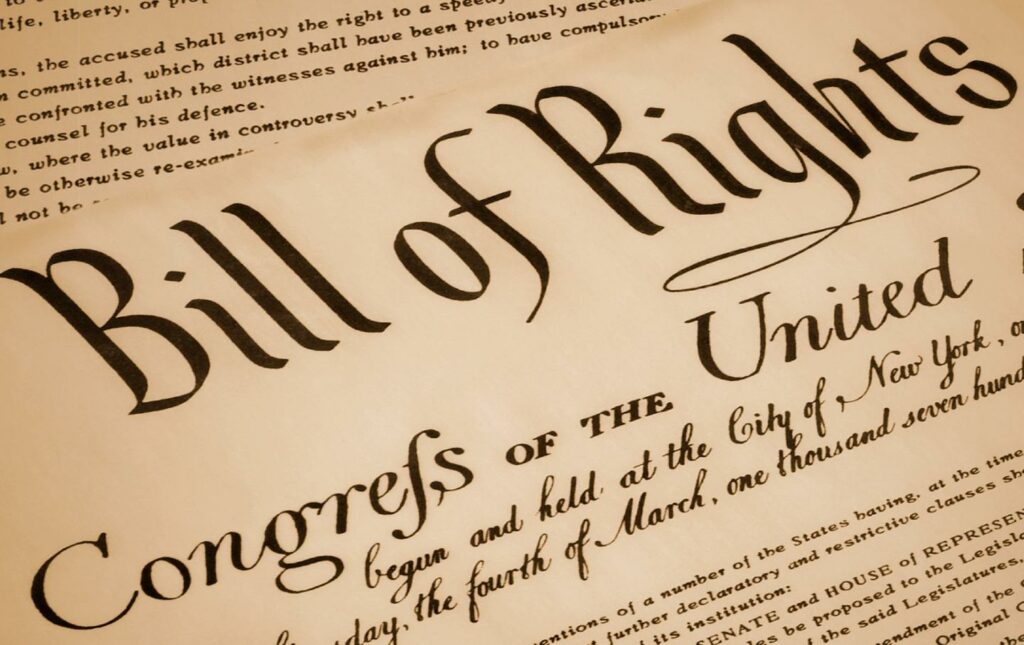
The first amendment to the U.S. Constitution famously bars congress from infringing on personal free speech or that of the press. In other words, it bans government from preventing expression but does nothing to constrain private enterprise from doing so, however.
The public often complains when private enterprise restrains free expression of thought and calls it an infringement, but nothing in constitutional law compels private interests to allow all and any public expression. The constitutional provisions of the first amendment, written in an age when insulting the King was a crime, apply to our government only.
Public perception of the right to free speech has changed with the nature of media. In 1791, communication was limited to what could be printed or said out loud. Both a printer and founding father, Benjamin Franklin noted that freedom of the press belongs to those who own the presses. For a long time, printed books, newspapers, and pamphlets were the only mass media, and this only changed when electronic media was adopted, such as the telegraph, radio, and television. The subsequent rise of computerized digital technology has brought with it an unparalleled level of public discourse in electronic mass media and has introduced a plethora of first amendment issues.
The definition of “the press” has changed; as the democratization of communication has expanded, nearly anyone can now reach millions of people in a “viral” instant. Traditional media such as daily newspapers are nearly obsolete, their printed information stale within minutes. Digital media like Facebook and Twitter have overtaken traditional media, and for all intents and purposes such outlets now comprise the modern “press” of our times.
Democratization of mass media has also brought with it an unprecedented level of intentionally false misinformation designed to manipulate public opinion. When stories appear on social media, they are beyond the reach of government and the first amendment; each media company sets its own standards of conduct, monitoring and discipline. Various forms of libel and slander are now so commonplace as to be ubiquitous, in addition to outright falsehoods; the rise of “deep fakes” – altered images, videos and the like make it impossible to distinguish truth from fiction. While some social media platforms have tried to constrain the spread of misinformation, it’s unstoppable. Also controversial, various forces within and outside of government are struggling to both constrain or facilitate it.
Originalists on the Supreme Court, tied as they are to their interpretation of a literally reading of the constitution, will be hard-pressed to adjudicate constraints of speech on social media. What comprises “The Press” today is increasingly unclear, and with it the rules and limitations that can be established by government. Prior restraint is meaningless in the digital world of social media, and the traditional cultural limits set on the nature of public discourse have been abandoned. National and international players with malign intentions have joined the game. Digital media has opened a Pandora’s box, and the worst demons inhabiting the human soul have been set loose upon us.
Elon Musk, Mark Zuckerberg and Donald Trump, extremely wealthy men who each control a social media outlet, seem dead set on facilitating misinformation. Trump has gone so far as to propose purging government and media companies of all and any role in policing speech. As their disinformation platforms overtake more responsible sources, public opinion is manipulated. To paraphrase Benjamin Franklin, freedom of the press belongs to those who own the money. Plutocrats now control the public dialogue.